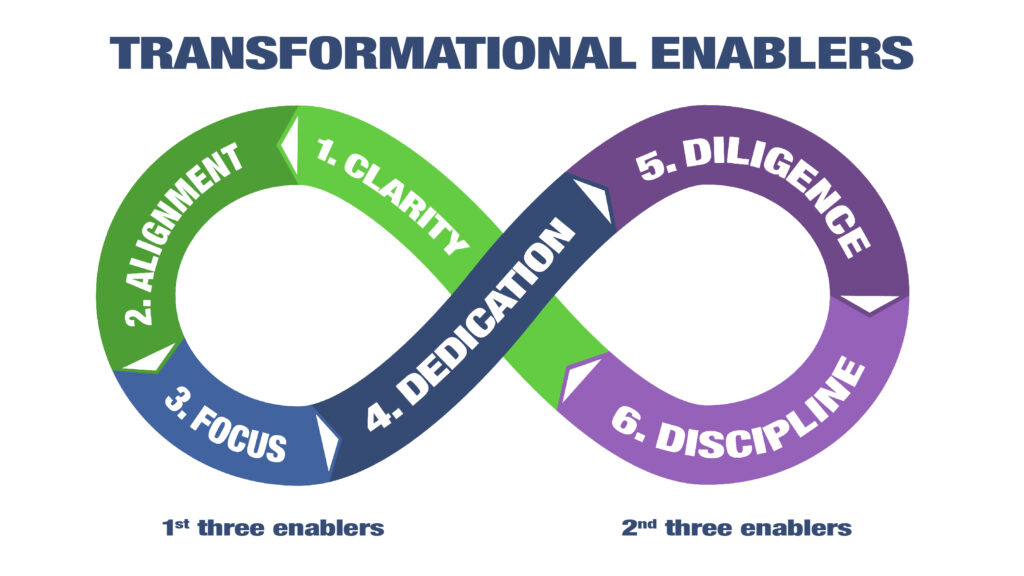Does your leadership team function in a culture that works – in good times and bad? Does it possess the kind of agile and effective leadership skills necessary to survive an economic downturn, such as a recession?
Does your business have the kind of cohesive leadership team ready to go beyond survivability into the rarified realm of “thrivability” in challenging times?
Believe me, maximizing performance in difficult economic periods might not be easy, but it can be done. So, what’s the secret to building the kind of culture behavior that nurtures and optimizes performance for sustainable profitability and growth? I believe there are two great places to start, but first…
An Example of Strong Leadership Skills and a Cohesive Leadership Team
In March 2020, Jeff Kittle, CEO/President of Kittle Property Group (KPG), launched the “Recession Buster” initiative. Even though an “official” recession did not occur in 2020, company performance and profit margin results were remarkable.
You see, Jeff, senior management, and key leaders at every level of the organization inspired team members to find ways to cut costs and improve effectiveness and efficiency of systems and processes. They challenged and equipped everyone in the culture to become resilient, innovative, and “scrappy.” That type of visionary leadership energized the organization and boosted results. In fact, the company saved millions of dollars from dozens of cost saving efforts.
By creating and fostering a climate of performance, they boosted motivation, productivity, and innovation in a way that significantly contributed to the bottom line.
Now, with recession an ever-present threat and possibility, how can your team do the same? I recommend adding these 2 strategic steps to your annual executive leadership team planning. Doing so will help your organization be more resilient and better prepared to survive and thrive in an economic downturn.
- Research and Report on the “Headwinds” Impacting Your Business in a “VUCA” world.
A January 2014 article in the Harvard Business Review titled What VUCA Really Means for You noted this: “It’s become a trendy managerial acronym: VUCA, short for volatility, uncertainty, complexity, and ambiguity, and a catchall for ‘Hey, it’s crazy out there!’”
With this in mind, ask your executive leaders to research and report on the economic “headwinds.” Have them identify “what’s crazy out there?” and share their insights with the rest of the team and other key leaders and executive advisors. This will help ensure that informed decisions can become winning moves for growth, no matter what the economic conditions.
(For a deeper dive into how to manage a downturn, read this McKinsey & Company article on transformational change: Something’s coming: How US companies can build resilience, survive a downturn, and thrive in the next cycle.)
- Next, Focus on Lessons Learned, Especially Failures!
Mark Divine, MBA, CPA, former Commander as a Navy Seal, and author of Unbeatable Mind—Forge Resiliency and Mental Toughness to Succeed at an Elite Level, reminds business leaders to take very seriously lessons learned to become resilient as an elite leadership team. He notes these 7 Leadership Commitments That Forge Elite Teams:
- Courage
- Trust
- Respect
- Growth
- Excellence
- Resiliency
- Alignment
For the Seals, the After Action Review, or “AAR,” was the time, right after the mission, to observe brutal facts about what worked well and what did not work well, especially your failures. Mark says this:
“Failure does not deserve to be addressed with recrimination or pity. Rather, failure must be honored for the insight it provides. Failure is the grist for learning; it is our teacher.”
I recommend you ask each leader to review the prior year, and answer these questions before the annual planning meeting:
- What did we accomplish this year?
- What improvements to the business did we make?
- What were our victories and bright spots?
- What did not go as planned?
- Most importantly, how did we fail? What did we learn? What will we do to apply those lessons to transform the most impactful failures into winning moves this year?
Then, after a well-facilitated conversation and productive debate, focus on the top 3 lessons learned. Prioritize the insights you have gained. What will it take to transform these lessons learned? Try using this phrase: “Given the condition of (failures), our ability to (internal strength, opportunities for our business during a downturn, trends to leverage in our favor) leads to my recommendation that we (winning move).”
The Bottom Line:
Are challenging economic times inevitable? Of course! There will always be lean times as well as boom years. Can your executive leadership team weather the storms and turn uncertainty into vitality? Absolutely.
By identifying the headwinds facing your organization and turning failures into opportunities, you can create winning moves to differentiate your business in the marketplace. Frankly, though, most business organizations and leadership teams tend to be “too close to the problem” to accurately see the true problems and implement course-correcting solutions. My job, as an executive coach, is to ask the right questions to help teams make better decisions to build resilience, survive a downturn, and thrive in the next cycle!
Want to learn more? The best place to start is to take a few minutes to complete the free Scaling Up Assessment. This simple tool will help you understand where you are so you can make the right moves for scaling up! Then, let’s start a dialogue!
Dr. Craig Overmyer is co-founder of Cultures That Work, Inc. As a Scaling Up Certified Coach, Craig and the Cultures That Work, Inc. team educate, train and coach mid-market business owners and their executive teams. After 35 years’ experience, Craig is known for leveraging easy-to-follow tools for the executive team to lead their entire company to be aligned for sustainable growth.
Dr. Overmyer is also a Results Certified Coach, Barrett Values Centre Consultant, and a Master of Business Dynamics (MBD). He is the author of Accelerate Thru Conflict-The Missing Conversations Before It’s Too Late!
A good place to begin your quest to freedom and effective leadership skills is to take the Scaling Up Assessment.
Take 4 minutes to complete the Scaling Up Assessment to know where you stand concerning the 4 decisions you have to get right when scaling up.











